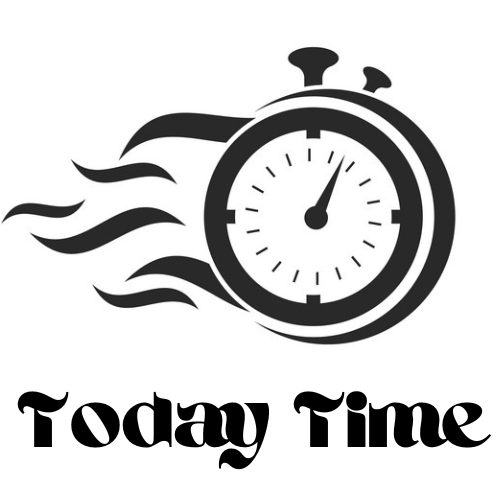Translating Medical and Pharmaceutical Content: Ensuring Accuracy

The field of medicine and pharmaceuticals relies heavily on accurate and precise information to ensure the well-being of patients and the effectiveness of treatments. However, with the global nature of healthcare, the need for translating medical and pharmaceutical content has become increasingly crucial. In this article, we will explore the importance of accurate translations in the medical and pharmaceutical industries and discuss the challenges faced in this specialized field.
In an interconnected world, medical and pharmaceutical information needs to be accessible to diverse populations. Translating medical content is vital to bridge language barriers and provide accurate healthcare information to patients, healthcare professionals, and regulatory bodies across different regions. However, ensuring accuracy in medical translations is a complex task that requires specialized knowledge and expertise.
Table of Contents
Importance of Accurate Medical and Pharmaceutical Translations
Accurate Translation Agency for medical and pharmaceutical content are of paramount importance for several reasons. Firstly, they ensure effective communication between healthcare providers and patients, who may not share a common language. Accurate translations enable patients to understand their diagnoses, treatment options, medication instructions, and potential side effects.
Additionally, accurate translations are crucial for regulatory compliance. Pharmaceutical companies must provide translated product information and documentation to meet the requirements of regulatory agencies in different countries. Any errors or inaccuracies in these translations can have serious consequences, including the potential for patient harm and legal ramifications.
Challenges in Translating Medical and Pharmaceutical Content:
Translating medical and pharmaceutical content poses several unique challenges. These challenges must be overcome to maintain accuracy and clarity in translations.
· Specialized Terminology: Medical and pharmaceutical texts contain a multitude of specialized terms and jargon that may not have direct equivalents in other languages. Translators must possess in-depth knowledge of medical terminology to ensure accurate Arabic Translation Services and avoid misunderstandings.
· Cultural and Linguistic Nuances: Medical information is often embedded in cultural and linguistic nuances that can vary greatly across different regions and languages. Translators must be aware of these nuances and adapt the content accordingly to maintain its intended meaning and cultural relevance.
· Regulatory Compliance: The medical and pharmaceutical industries are highly regulated, and translated content must comply with the specific regulations and guidelines of each target country. Translators must navigate these regulatory requirements to ensure that translated documents meet the necessary standards.
· Maintaining Accuracy and Clarity: Accuracy and clarity are paramount in medical translations Website Translation Services. Translators must convey complex medical concepts accurately while ensuring that the content remains clear and easily understandable to the target audience. Precision is crucial, as any errors or misinterpretations can have severe consequences.
Role of Professional Translators in Medical and Pharmaceutical Translations:
Professional translators play a vital role in ensuring accurate medical and pharmaceutical translations. They possess the necessary linguistic skills and subject matter expertise to accurately convey medical information across different languages. These translators undergo rigorous training and have a deep understanding of the specific terminology and context within the medical field.
Quality Assurance in Medical and Pharmaceutical Translations:
To maintain high-quality translations, several quality assurance measures are employed in the medical and pharmaceutical translation processes.
· Translation Memory Tools: Translation memory tools help maintain consistency and efficiency in translations. They store previously translated content, allowing translators to leverage their previous work for repetitive phrases, ensuring consistency across multiple documents and projects.
· Linguistic Validation: Linguistic validation involves verifying that the translated content accurately reflects the original meaning while considering cultural and linguistic nuances. This validation process ensures that the translations are linguistically appropriate for the target audience.
· Review and Proofreading: Review and proofreading by experienced linguists or subject matter experts are essential steps in the quality assurance process. These experts meticulously review the translated content, ensuring accuracy, coherence, and adherence to industry-specific guidelines.
Technology Advancements in Medical Translation:
Technology has significantly impacted the field of medical translation. Machine translation, translation memory tools, and terminology management systems have streamlined the translation process, increasing efficiency and consistency. However, human involvement remains crucial to ensuring the accuracy and nuanced understanding required in medical and pharmaceutical translations.
Ethical Considerations in Medical and Pharmaceutical Translations:
Translating medical and pharmaceutical content carries ethical responsibilities. Translators must maintain patient confidentiality, adhere to professional codes of conduct, and ensure accurate translations that prioritize patient safety and well-being.
Importance of Localization in Translating Medical and Pharmaceutical Content:
In medical and pharmaceutical translations, localization is vital to account for cultural differences, local regulations, and regional medical practices. By localizing the content, translations become more accurate, relevant, and impactful for the intended audience.
Benefits of Accurate Translations for Healthcare Providers:
Accurate translations of medical and pharmaceutical content offer numerous benefits to healthcare providers. These include improved patient communication, enhanced patient safety, compliance with regulatory requirements, and the ability to reach a broader patient base.
Accurate translations in the medical and pharmaceutical fields are indispensable for effective communication, regulatory compliance, and patient safety. Professional translators with specialized knowledge and expertise play a crucial role in ensuring accuracy, clarity, and cultural appropriateness in these translations. As technology continues to advance, it is vital to strike a balance between automation and human involvement to maintain the highest standards in medical and pharmaceutical translations.




